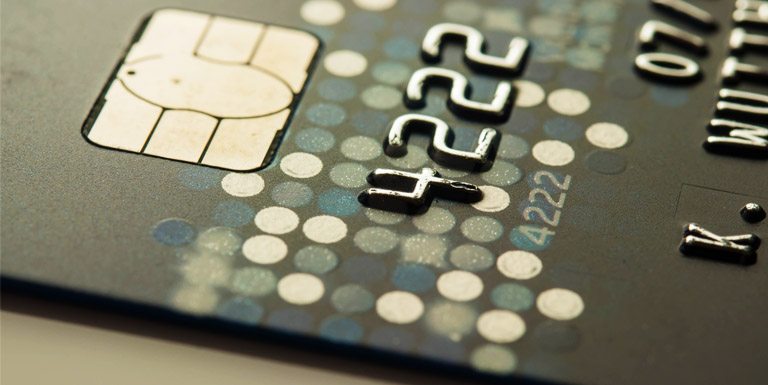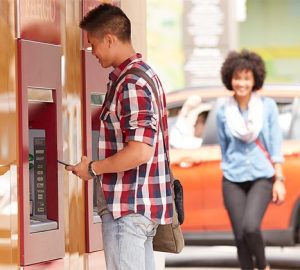Which is worse: No credit or bad credit?

Spoiler alert: Both are not optimal, but with some small tweaks you can improve your credit over time.
Is your credit history a blank slate? If you’ve never had a car loan, a student loan, or credit card in your name, it likely is. You may pride yourself on having no debt, be debt-averse, or you simply prefer the convenience of cash. But having no or a limited credit history can keep financing significant purchases or financial milestones out of reach.
On the flip side, what if you have credit history — but you’ve made a few missteps? A credit history containing missed payments or high debt may make you less attractive to lenders, creditors, and possibly even future employers. Whether you have no credit or bad credit, each scenario poses its own challenges. Here’s a closer look at the consequences of having no credit versus poor credit.
No credit, no problem? Not really.
It might seem like everyone you know has one or more credit cards or is paying off a loan. Yet 26 million Americans are “credit invisible,” meaning they have no credit.1 Another 19 million are considered “unscorable” because their credit history is insufficient or not recent.1 A recent Bankrate survey reveals that nearly half of people between 18 and 29 years old don’t have a credit card.
Staying off the credit radar may seem like a safe choice, but it’s not always in your best interest to be “credit invisible.” Your credit report — your history of current debt, outstanding loans, and payment history, compiled by the Equifax, Experian, and TransUnion — reflects your ability to pay bills on time and responsibly manage debt. Without this snapshot, lenders and creditors have no way of gauging your creditworthiness—your ability to borrow money and pay it back.
Increasingly, credit isn’t an option — it’s becoming more of a necessity for the milestones and modern conveniences you take for granted, like renting an apartment or buying a cell phone or car.
When bad credit bites
Being late on a loan payment or not paying down your credit card debt may not seem like a big deal, but an accumulation of late or missed payment dings can really start to weaken your credit history. A tarnished credit history makes it harder to secure your financial goals down the road. It can even impact your career goals.
Negative actions like late and missed payments, carrying high balances and loan defaults are all reflected on your credit history and could lower your credit score. A less than stellar credit report and low credit score indicates that you’re more likely to be a risky borrower. A car loan, apartment, or cell phone might still be within reach, but you’ll have to jump through more hoops and pay more as a result.
“Landlords, utility providers and even some employers look at your credit reports.”— Bankrate
Bad credit vs. no credit
So which scenario is worse — not having any credit or having bad credit? “Neither is good,” says Greg Reeder, CFP, a financial advisor with McClarren Financial Advisors in State College, Pennsylvania. However, “A poor credit score is worse,” he says. “If you have no credit, you can start from the ground up. If you have poor credit, you’re starting from below ground level and it takes longer to improve,” Reeder says.
Whether you’ve made some missteps in managing your debt or you’re starting from scratch, establishing or improving your credit history is entirely doable and, in the long run, will give you more borrowing options. It just takes time, diligence, and learning new habits to stay credit-savvy and responsible. Eligible Wells Fargo Online® customers have complimentary access to their FICO® Score and more with Credit Close-Up®.²
How to: Continue building credit
- Maintain good credit. Keep your purchases small, pay your bill on time, and stay below your credit limit.
- Accumulate a consistent payment history. Use your credit card to pay a recurring bill or subscription. Remember, your goal isn’t to make a lot of purchases — it’s to demonstrate that you’re a reliable borrower by making consistent, on-time payments.
How to: Improve your poor credit history
- Get a copy of your free credit report. Check for errors and outdated debt. Then follow up with the credit bureaus to correct any errors on your report and any other inconsistencies.
- Reduce the debt you owe on outstanding accounts. To avoid falling behind any further, call your creditors to set up a payment plan. “Getting rid of old debt is the first step to improving your credit score,” advises Reeder.
- Pay your bills on time. Take advantage of services that let you set up payment reminders or automatic payments, and stay on top of your bills by making consistent payments.
- Charge only what you can afford. Pay off new charges each month to avoid taking on any more debt.




